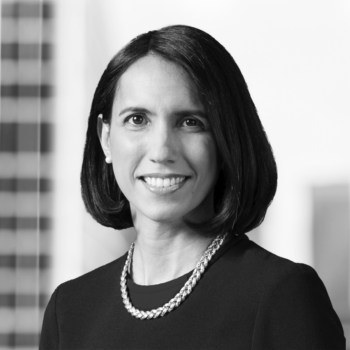| Ariel International Fund (Investor Class) | |
|---|---|
| Ticker | AINTX |
| Daily NAV (as of 08/01/2025) | 16.86 |
| Inception Date | 12/30/2011 |
| Fund Assets (as of 06/30/2025) | $265.3 million |
| Cusip | 040337883 |
| Minimum Initial Investment | $1,000 |
| Dividends and Distributions | Annually |
| Expense Ratio | 1.17%* |
| Ariel International Fund (Institutional Class) | |
|---|---|
| Ticker | AINIX |
| Daily NAV (as of 08/01/2025) | 16.51 |
| Inception Date | 12/30/2011 |
| Fund Assets (as of 06/30/2025) | $265.3 million |
| Cusip | 040337875 |
| Minimum Initial Investment | $1,000,000 |
| Dividends and Distributions | Annually |
| Expense Ratio | 0.91%* |
Our Portfolio Managers

Executive Vice President

Senior Vice President, Head of Investments, Global Equities

Senior Vice President, Global Equities
We embrace
Active patience
Long investment horizon
Discernable catalysts
Lower turnover
Independent thinking
Non-consensus perspective
Benchmark agnostic
Inefficiency equals opportunity
Focused expertise
Deep domain knowledge
Forward-looking projections
Bottom-up stock selection
Bold teamwork
Dissent Encouraged
Collective experience leveraged
Aligned incentives
We reject
Short termism
Risk on/risk off investing
Value traps
Trading mentality
Group think
Conventional wisdom
Closet indexing
Collecting information
Thematic investing
Novice practitioners
Backward-looking research
Top-down portfolios
Individualism
Siloed decision-making
Smartest in the room mentality
Winner takes all
Sector Weightings
| (as of 06/30/2025) | ||||||||
| (as of 06/30/2025) | Ending Weight (%) | MSCI EAFE Net Index (%) | MSCI ACWI ex-US Net Index (%) | |||||
|---|---|---|---|---|---|---|---|---|
| Financials | Ending Weight (%) 21.69 |
MSCI EAFE Net Index (%) 23.82 |
MSCI ACWI ex-US Net Index (%) 25.12 |
|||||
| Consumer Discretionary | Ending Weight (%) 18.87 |
MSCI EAFE Net Index (%) 9.77 |
MSCI ACWI ex-US Net Index (%) 10.13 |
|||||
| Information Technology | Ending Weight (%) 11.41 |
MSCI EAFE Net Index (%) 8.51 |
MSCI ACWI ex-US Net Index (%) 13.27 |
|||||
| Industrials | Ending Weight (%) 10.69 |
MSCI EAFE Net Index (%) 19.03 |
MSCI ACWI ex-US Net Index (%) 14.82 |
|||||
| Health Care | Ending Weight (%) 10.24 |
MSCI EAFE Net Index (%) 11.25 |
MSCI ACWI ex-US Net Index (%) 8.00 |
|||||
| Communication Services | Ending Weight (%) 7.89 |
MSCI EAFE Net Index (%) 5.45 |
MSCI ACWI ex-US Net Index (%) 6.38 |
|||||
| Utilities | Ending Weight (%) 7.66 |
MSCI EAFE Net Index (%) 3.50 |
MSCI ACWI ex-US Net Index (%) 3.17 |
|||||
| Consumer Staples | Ending Weight (%) 5.89 |
MSCI EAFE Net Index (%) 7.98 |
MSCI ACWI ex-US Net Index (%) 6.65 |
|||||
| Funds | Ending Weight (%) 2.14 |
MSCI EAFE Net Index (%) 0.00 |
MSCI ACWI ex-US Net Index (%) 0.00 |
|||||
| Energy | Ending Weight (%) 1.01 |
MSCI EAFE Net Index (%) 3.20 |
MSCI ACWI ex-US Net Index (%) 4.57 |
|||||
| Real Estate | Ending Weight (%) 0.95 |
MSCI EAFE Net Index (%) 1.90 |
MSCI ACWI ex-US Net Index (%) 1.69 |
|||||
| Materials | Ending Weight (%) 0.00 |
MSCI EAFE Net Index (%) 5.60 |
MSCI ACWI ex-US Net Index (%) 6.20 |
|||||
| Short-Term Investments | Ending Weight (%) 1.02 |
MSCI EAFE Net Index (%) 0.00 |
MSCI ACWI ex-US Net Index (%) 0.00 |
|||||
Disclosures related to the data above can be found at the bottom of this page. |
||||||||
The following disclosures provide definitions relevant to the Key Facts / General Information about this Product, its Performance tables, Top 10 Positions tables, and Industry or Sector Weightings data tables shown above.
Investments in foreign securities may underperform and may be more volatile than comparable U.S. stocks because of the risks involving foreign economies and markets, foreign political systems, foreign regulatory standards, foreign currencies and taxes. The use of currency derivatives and exchange-traded funds (ETFs) may increase investment losses and expenses and create more volatility. Investments in emerging markets present additional risks, such as difficulties in selling on a timely basis and at an acceptable price. The intrinsic value of the stocks in which the Fund invests may never be recognized by the broader market. Ariel International Fund is often concentrated in fewer sectors than its benchmarks, and its performance may suffer if these sectors underperform the overall stock market. Investing in equity stocks is risky and subject to the volatility of the markets.
Performance data quoted represents past performance. Past performance does not guarantee future results. All performance assumes the reinvestment of dividends and capital gains. The investment return and principal value of an investment will fluctuate so that an investor’s shares, when redeemed, may be worth more or less than their original cost. Current performance may be lower or higher than the performance data quoted.
Indexes are unmanaged. An investor cannot invest directly in an index.
The MSCI EAFE® Index is an equity index of large and mid-cap representation across 21 Developed Markets (DM) countries around the world, excluding the U.S. and Canada. Its inception date is May 31, 1986.
The MSCI EAFE Value Index captures large and mid-cap securities exhibiting overall value style characteristics across Developed Markets countries around the world, excluding the US and Canada. Its inception date is December 8, 1997.
The MSCI ACWI (All Country World Index) ex-US Index is an index of large and mid-cap representation across 22 Developed Markets (DM) and 24 Emerging Markets (EM) countries. Its inception date is January 1, 2001.
The MSCI ACWI ex-US Value Index captures large and mid-cap securities exhibiting overall value style characteristics across 22 Developed and 24 Emerging Markets countries. Its inception date is December 8, 1997.
All MSCI Index net returns reflect the reinvestment of income and other earnings, including the dividends net of the maximum withholding tax applicable to non-resident institutional investors that do not benefit from double taxation treaties. MSCI uses the maximum tax rate applicable to institutional investors, as determined by the companies country of incorporation. MSCI makes no express or implied warranties or representations and shall have no liability whatsoever with respect to any MSCI data contained herein. The MSCI data may not be further redistributed or used to create indices or financial products. This report is not approved or produced by MSCI.
The sectors shown for the Global strategies are the Global Industry Classification Standard (“GICS”). GICS was developed by and is the exclusive property and service mark of MSCI Inc. and Standard & Poor’s (S&P), a division of The McGraw Hill Companies, Inc. GICS is licensed for use by Ariel Investments, LLC. Neither MSCI, S&P nor any third party involved in making or compiling GICS or any GICS classifications makes any express or implied warranties or representations with respect to such standard or classification (or the results to be obtained by the use thereof), and all such parties hereby expressly disclaim all warranties of originality, accuracy, completeness, merchantability and fitness for a particular purpose with respect to any such standard or classification. Without limiting any of the foregoing, in no event shall MSCI, S&P, any of their affiliates or any third party involved in making or compiling the GICS or any GICS classifications have any liability for any direct, indirect, special, punitive, consequential or any other damages (including lost profits) even if notified of the possibility of such damages.
Ending Weight is the value of the holding relative to the portfolio’s total assets as of the report date.
*Ariel International Fund, Investor Class:
As of February 1, 2025, the gross expense ratio for the Investor Class was 1.40%. Effective November 29, 2016, Ariel Investments, LLC, the Adviser, has contractually agreed to waive fees and reimburse expenses (the “Expense Cap”) in order to limit Ariel International Fund’s total annual operating expenses to 1.13% of net assets for the Investor Class through January 31, 2026. The net expense ratio for the Investor Class does not correlate to the Expense Cap due to the inclusion of certain other expenses which are excluded from the Expense Cap. From February 1, 2014 through November 28, 2016, the Expense Cap was 1.25% of net assets for the Investor Class. Prior to February 1, 2014, the Expense Cap was 1.40% of net assets for the Investor Class. The Expense Cap has been lowered over time. Contact us for historical information about the Expense Cap.
*Ariel International Fund, Institutional Class:
As of February 1, 2025, the gross expense ratio for the Institutional Class was 1.01%. Effective November 29, 2016, Ariel Investments, LLC, the Adviser, has contractually agreed to waive fees and reimburse expenses (the “Expense Cap”) in order to limit Ariel International Fund’s total annual operating expenses to 0.88% of net assets for the Institutional Class through January 31, 2026. The net expense ratio for the Institutional Class does not correlate to the Expense Cap due to the inclusion of certain other expenses which are excluded from the Expense Cap. From February 1, 2014 through November 28, 2016, the Expense Cap was 1.00% of net assets for the Institutional Class. Prior to February 1, 2014, the Expense Cap was 1.15% of net assets for the Institutional Class. The Expense Cap has been lowered over time. Contact us for historical information about the Expense Cap.



